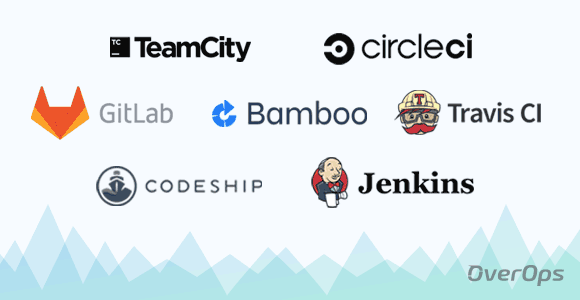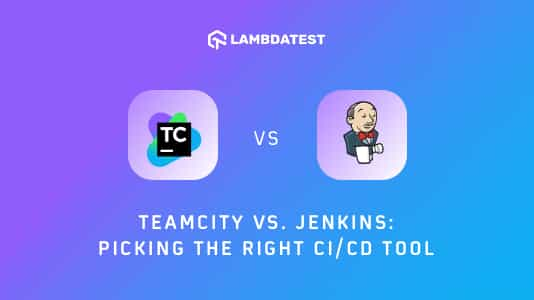

- Jenkins vs teamcity upgrade#
- Jenkins vs teamcity full#
- Jenkins vs teamcity software#
- Jenkins vs teamcity code#
- Jenkins vs teamcity license#
Jenkins vs teamcity full#
Jenkins vs teamcity code#
Jenkins vs teamcity upgrade#
Fast and easy installation and upgrade on different operating systems.
Jenkins vs teamcity software#
Jenkins facilitates building, deploying, and automating the software development process with loads of plugins available and promotes testing and reporting in real-time on isolated modifications in a wider code base. It is a Java-based, self-contained, cross-platform, CI/CD tool with Windows, macOS, and other Unix-like operating system packages. Jenkins is an open-source server for automation wherein the process of central development and continuous integration takes place. So, here in this article, I am presenting a list that will assist you in selecting the best CI/CD Tool. Many CI/CD tools are there in the market, but choosing the right CI/CD tools that fit the budget and project specifications is crucial. CI/CD tools find bugs and prevent conflicts with integration due to regular committing of source code at the early stages. It offers the requisite functionality for developers so that you can continuously deploy the code. This seems difficult to do as many developers upload a huge number of commits to version control at the same time so, it gets complicated to trace the root of a bug beneath all the Code.Ĭontinuous Integration (CI) and Continuous Delivery (CD) evolved as a solution to this issue. In that case, being a software developer is much more than just coding because businesses are making a move towards DevOps strategies and Agile methodology, to speed up the delivery speed and guarantee the product quality. Having used both of them, and still use them both in my current company, I tend to prefer TeamCity over Jenkins mainly because TeamCity is so easy to use and it behaves better under node js deployments, which gives it a bit of an edge over Jenkins, not to mention the ancient Jenkins interface :).īut don’t understand me wrong, Jenkins is an awesome CI and should be always considered as a viable option.The latest norm in software engineering is “Quality products at a higher speed”. Built in Java, meaning that if you want to create your own plugin you have to know java.Also, if you work on a startup you get 50% discount, and if you’re working on an open source project the license is free.
Jenkins vs teamcity license#
The simplicity and ease of usage caught my attention from the first day.Īlthough being a commercial product, meaning you have to pay for it, you have 20 builds and 3 free agent installations, which should be enough for you to start using it and show the business guys how awesome it is, so you can ask for the license purchase :). Although the reason for me to start using TeamCity wasn’t at first related to its features, I’m glad I choose to use TeamCity. TeamCity developed by JetBrains is the CI I now use the most. It’s a very mature product with lots of plugins providing all the heavy lifting for you and an enormous community to help you as well. So if your an opensource enthusiast this might be the right tool for you. Node js plugin doesn’t work on windows machine installations yet (This was the main reason for me to start using TeamCity 🙂 ).Some server instability (at least when installed in a windows machine).Jenkins was the first CI I’ve used and I must admit is a really good product, even more when you think that is an open source project and you don’t have to pay anything to use it.

TeamCity and Jenkins are two of the most used CI’s out there, and having used both of them I have a pretty solid idea of the pros and cons of each one and I’ll list some of them in this post according to my experience using both products.


 0 kommentar(er)
0 kommentar(er)
